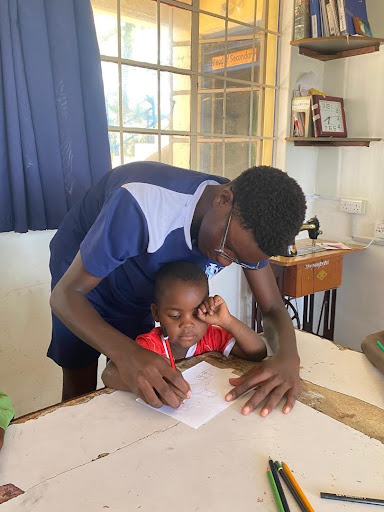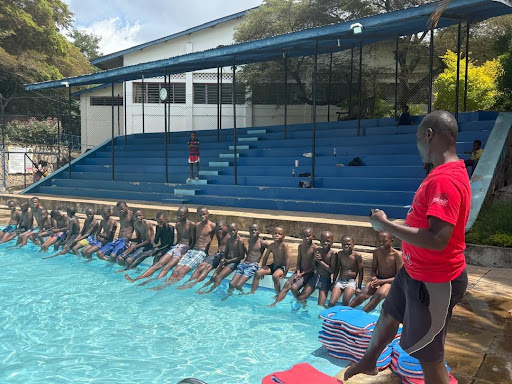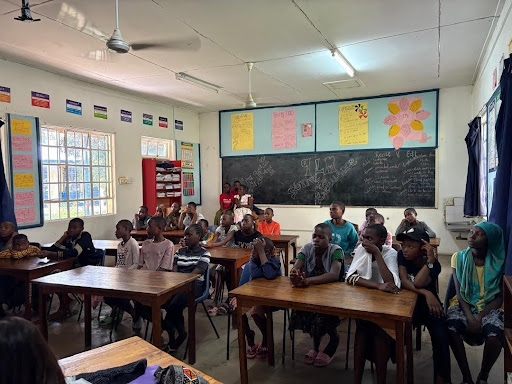Education is a privilege, people say – and in the towns of Tanzania, that seems especially true. The slim access to quality education, driven by socioeconomic gaps and limited resources, is one of the country’s biggest concerns. But, of course, a problem also encourages attempts at solutions. OHSer Dev Shah (‘27) is the current president of Saturday School, a nonprofit that offers tutoring to 150 unprivileged students. Run with the local brick-and-mortar Isamilo International School in Mwanza, Tanzania, the program’s chief aim is to expand schooling opportunities in the local community.
Saturday School began in 2022. Prior, Shah and his friends had taken special notice of educational inadequacies in Mwanza. “There’s a lot of inequality between even the average middle classes and lower middle classes. Kids go to school without even basic things like pencils or books,” Shah said. “So we started an organization where maybe we couldn’t bridge the gap entirely, but at least make people as little affected by it as possible.”

For three to four hours every Saturday, Shah and fellow volunteers guide students through academic and sports-based classes. The lessons taught include English, computer skills, art, football, swimming, and basketball. For many of the students, who cannot receive such high-quality education in local institutions, Saturday School is one of the greatest opportunities they could ever receive.
As well as free tutoring on inaccessible subjects, another meaningful part of the program are once-a-month “handouts” of items to support students. “In February, we handed out school stationeries and school bags to all the children for their upcoming academic year,” Shah shared, highlighting the program’s attempt to enhance learning opportunities through resources.
Though Saturday School positively impacts all its students, Shah feels that the computer class has benefited the most. Students in the class learn basic computer skills, such as using the desktop and keyboard. While most of us naturally develop such knowledge through everyday use of computers, Tanzania children often lack access to devices. “Yet this, the digital world, is our future and of Tanzania,” Shah said. The computer class is especially significant as a step toward that prospect.
Computer classes actually started through one student, twelve-year-old Junior Nesphori, whom Shah remembers as particularly memorable for his ripple impact to the nonprofit. Motivated by his parents’ computer-based jobs, Junior thought of and asked for computer classes.
“He and his friends did exceptionally well [in the classes]; now they are asking for coding classes too!” said Shah. “It’s great how just one student used his background and desire to gain skills that others were not very excited about or interested in. Junior has ushered us into this new chapter we’re looking forward to.”
As the computer classes make evident, Saturday School has clear plans about going forward. Shah’s goal as president is to expand the scale of the nonprofit by increasing the number of students. “The last president was aiming at letting more people know [about the program],” he said. “Now that they know, we want to do this for more students. We’re planning at least 250.”


